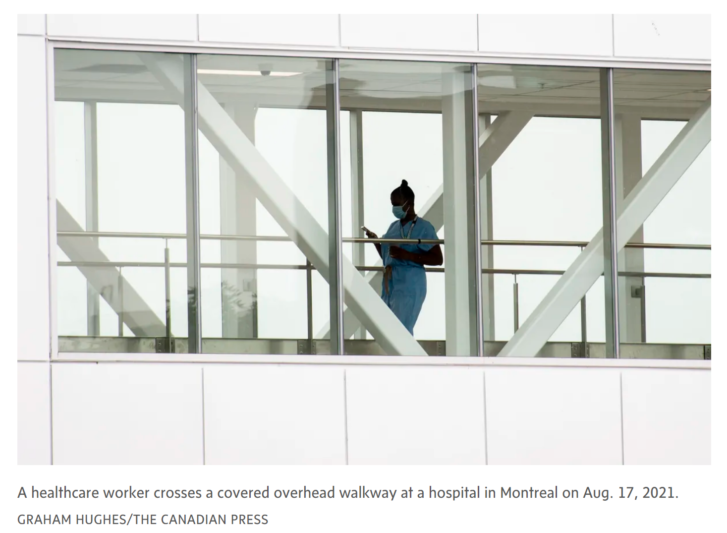Angela Cooper Brathwaite and Corsita Garraway are registered nurses and co-chairs of the Registered Nurses’ Association of Ontario’s Black Nurses Task Force. Doris Grinspun is CEO of the Registered Nurses’ Association of Ontario.
When the murder of George Floyd in May, 2020, shocked the world, Ontario’s nursing community gathered to mourn and to take action against anti-Black racism. Led by the Registered Nurses’ Association of Ontario, over 300 nurses came together online, many sharing their own struggles as Black nursing colleagues. We knew racism and discrimination existed within our own profession, just as it did in society at large. We experienced it. It was systemic, and we knew we had to act with urgency to make deep changes.

In response, the association launched the Black Nurses Task Force with a mandate to create a road map to ensure equitable workplaces, systems of support for Black nurses who experienced racism and discrimination, and mentorship to assert career advancement. There was no plainer way to describe it: We needed to confront the overwhelming whiteness of our profession.
Black nurses face countless obstacles in Canada. These include not being accepted as equals by our white colleagues in nursing school, not having the opportunity to be taught by Black instructors and professors and being passed over when applying for management or executive positions in hospitals and other health settings.
While caring for patients, Black nurses are often subjected to racial taunts. Being called a “Black nurse” instead of by name. Being asked where are we are “really” from. Being teased about our hair. Experiences like this are belittling and demeaning. They make Black nurses feel alone and – worse – like outcasts because of skin colour.
These examples of overt and covert racism and discrimination are not unique. Unfortunately, they reveal the systemic nature of anti-Black racism that exists within the nursing profession and the broader health system.
Our task force of 17 Black colleagues empowered us to identify the microaggressions, discrimination and racism we were once hesitant to share or speak out about.
We examined our profession’s history of excluding Black women, including preventing them from attending nursing schools until the 1940s. We explored our Black nursing colleagues’ struggles to achieve equal access to professional development, promotions, and access to leadership roles in all domains of nursing practice, education, administration, research and policy. Making gains in these areas has been challenging, and much work remains ahead.
We purposefully chose February, the month in which we celebrate Black history, to release our findings and recommendations. The report, Acknowledging, Addressing and Tackling Anti-Black Racism and Discrimination Within the Nursing Profession, contains 19 recommendations aimed at health-care organizations and employers, regulatory bodies, nursing programs in colleges and universities, and the broader health-care system to tackle structural racism experienced by Black nurses and Black nursing students.
We must expunge racism from our profession because it is having a devastating impact on the lived experiences of our Black colleagues. And, racism also deprives the service, academic and policy sectors of Black expertise, experiences and talents. Excluding Black nurses is a lose-lose situation for everyone.
The recommendations touch on every aspect of the profession. Among the gaps they address are the absence of race-based data, the underrepresentation of Black nurses in postsecondary nursing education, and the underrepresentation of Black nurses as faculty, managers, senior nurse executives, presidents and CEOs of hospitals and other health organizations.
Our research shows that Black nurses remain largely absent from leadership/management positions and specialty practice areas such as intensive care. Too often, they work in entry-level positions, non-specialty roles or, when arriving as internationally educated nurses, end up working as unregulated personal support workers.
The report’s recommendations are a clarion call for action to recognize anti-Black racism and combat its damaging effects. We can and must overcome the barriers in the way, uproot and overturn them. And, we must do so with urgency.
Article From: Globe and Mail
Authors: ANGELA COOPER BRATHWAITE, CORSITA GARRAWAY AND DORIS GRINSPUN

